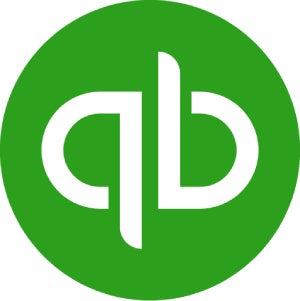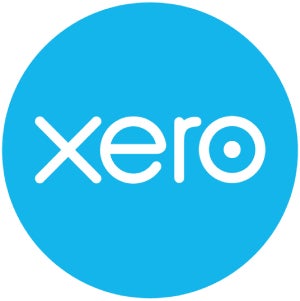
Rental properties have always been a leading method of generating revenue. But newer models of short-term renting using platforms like Airbnb, Vrbo and the like add a number of complications that can make the management portion of property management more challenging than usual.
Since much of that challenge comes down to running and managing the finances involved, we’ve taken the liberty of gathering a list of well-regarded software solutions that may help you get a better handle on all of your vacation rentals (along with any of your other properties).
After all, the line between asset and liability is often defined by how well the accounting is managed, which can be made easier with accounting software.
Rental managers come from numerous circumstances and situations, so we’ve tried to cover our bases — and yours — with a sampling of some of the best accounting app options. The list below consists of a collection of industry-agnostic financial tools, apps designed with short-term rental managers in mind and some that bridge the gap via integrations and add-ons.
| Starting price | Per property tracking | Itemized income and expense | VRM integration | Payroll function | |
|---|---|---|---|---|---|
| QuickBooks Online | $30 per month | Yes | Yes (via integration) | Yes (via integration) | Add-on |
| Xero | $15 per month | Yes | Yes (via integration) | Yes (via integration) | Yes (via integration) |
| Wave Accounting | $16 per month | Partial | Yes | No | Add-on |
| AppFolio | $1.49 per unit, per month | Yes | Yes (via integration) | Yes (via integration) | No |
| Zoho Books | $20 per organization per month | Yes | Yes | No | Yes (via integration) |
| Instabooks | $20 per month | Yes | Yes | Yes | No |
QuickBooks is something of a big deal in the financial software space. Often referred to as the premier SMB accounting app, it’s seen use in basically every industry, and you’d be hard pressed to find a bookkeeper who doesn’t have at least a basic grasp of how to use it.
While QuickBooks is not specifically intended for those managing Airbnb listings, it has a very deep feature set and a library of integration options as long as a CVS receipt. Most importantly, through its integration with Bnbtally, you can pull financial information directly from your hosting platform into your QuickBooks ledgers.
For more information, read the full QuickBooks Online review.
| Pros | Cons |
|---|---|
|
|

While perhaps lacking some of the brand recognition of the previous list entry, it’s not due to any inferiority in what Xero has to offer. As a financial app built around ease of use, intuitive interface design and hassle-free user experience, Xero offers many of the most laudable features of QuickBooks and other big-name financial apps. Xero’s advantage, though, is a comparably lower cost and much more approachable tool set. With shallower learning curves and a great deal of flexibility, Xero is quickly becoming the go-to solution for SMBs in a number of industries.
Like QuickBooks, Xero is a more general solution, but with a number of key integration options (like Bnbtally), it can serve very effectively as an accounting app, even for something as unique as short-term rental management.
For more information, read the full Xero review.
| Pros | Cons |
|---|---|
|
|

It’s hard to argue with the price of “free.” In addition to its other advantages, that’s one major benefit that Wave Accounting brings to the table. Wave users can make the most of the majority of the tool’s best features without paying a dime. And most of those not included in free subscriptions can be used as monthly or per-use add-ons.
Wave offers an unlimited number of user seats, collaborator accounts and so forth. Subscription fees are comparatively low, even for paid plans and features. And Wave is also very user friendly. That said, this is one cross-industry accounting solution that doesn’t yet have any rental-specific integrations (so you won’t benefit from industry tools like Bnbtally).
For more information, read the full Wave Accounting review.
| Pros | Cons |
|---|---|
|
|

If you’re looking for a solution laser-focused on this particular use case, this is the list entry for you. AppFolio is built tip-to-tail for real estate investors, property managers and other related professions. With companion products covering areas like maintenance, leasing, staffing and more, it’s a comprehensive software solution for property managers who need it.
Even if all you need is accounting and reporting for your STVR portfolio, AppFolio has you covered. The app has baked-in functionality for managing multiple properties, tracking common area maintenance costs and handling tasks like tenant debt collections and bulk tenant charges (just to name a few). It’s an enterprise-grade accounting app, but just for real professionals (ok, we’re really sorry for that last property pun).
| Pros | Cons |
|---|---|
|
|

Zoho is a bit of an oddball in this list. It’s an industry-neutral solution like Xero and Quickbooks, and it unfortunately lacks any rental-specific integrations, just like Wave. What sets Zoho apart is the very odd mix of narrow and broad scope in the platform’s functionality. Zoho Books constitutes the financial portion of the software suite, but the family of apps also includes a CRM, an inventory management tool, a project management solution, an email automation app and a whole host of others (covering areas like legal, IT and more).
Put simply, Zoho casts the widest net of this whole list. It gives up some of the standard accounting fare in exchange, but for those already using Zoho, or who need to leverage tools like the others under its umbrella, the interoperability alone may be worth the investment.
For more information, read the full Zoho Books review.
| Pros | Cons |
|---|---|
|
|

Sometimes, nothing can really compete with the convenience of having everything you need in the palm of your hand. Mobile-first design has been a major driver of industry and innovation for the better part of a decade now for just that reason. That’s where Instabooks comes in: With its app-first approach, its tools and systems are easier to access than any other in this list.
With the majority of the central functionality of the competition in this list — from tax calculations to bill management to Airbnb-specific expense tracking — and with incredibly convenient mobile apps to deliver its functionality, Instabooks offers a user experience almost wholly unique to them in this space.
| Pros | Cons |
|---|---|
|
|
In the case of short-term rentals, this answer is hard to define (like always) but fairly easy to outline. One of the most important factors that determines what tools will work for your use case is the size of your portfolio. If you’re only managing a handful of properties, then a less targeted solution may meet your needs.
If, instead, you’re working with dozens or hundreds of rentals, you may need something that can support the entirety of your business.
Beyond that, integrations are probably your second-biggest concern. If you have listings scattered across multiple hosting platforms, you may need something that can integrate with all of them (or that can get the job done regardless of integrations). If you primarily use just one platform, though, it may be easier to find a tool with the integration you need.
Aside from those two unique factors, it’s entirely up to your specific budget, needs and preferences. What would make accounting easier for you? What conveniences would save you the most time? And what can you afford? Write down a list of must-haves and nice-to-haves, then use those as a guide while you research various options.
While writing this article, we researched the vendors and their websites, as well as customer reviews and ratings, to gain a full understanding of where each solution fits into the market landscape — and who they serve most effectively.